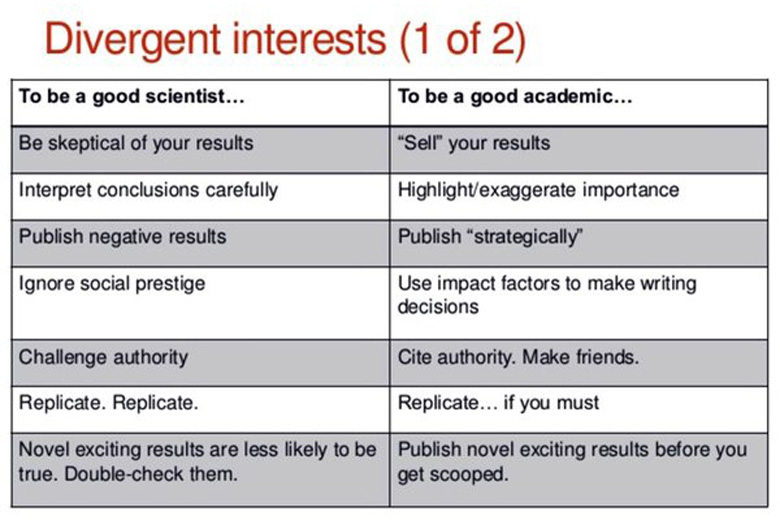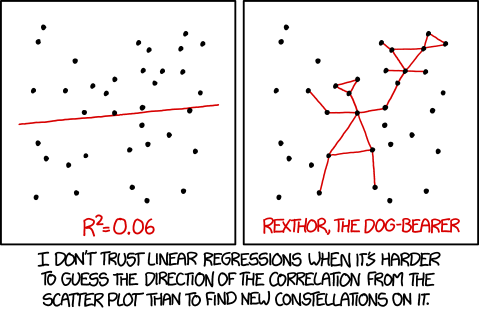I just came across an article on "
The Rise of the Trump Academic," and I'm really not sure what to make of it. Of course, academic authenticity and integrity are really important. I also think sharing your work is important. I think talking about your work with smart people will increase the likelihood of developing new, good ideas. I think it's important to think carefully about the relevance of your work before submitting it--that's part of your job as a researcher. All of that said, I think the chart below is pretty much on the money.
To my past, current, and future students: I want you all to have successful careers. But I will be especially proud of you if when given the choice between being a good scientist and a good academic, you choose science. I honestly (maybe naively) believe that
in the long run, the most successful academics are also the best scientists.
 |
| Source: @SciPubLab/Twitter |


